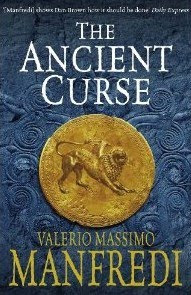 the United States, he commands a training company of up to 240 soldiers. He and his wife live in Elgin, Oklahoma. The Severance is his first novel.
the United States, he commands a training company of up to 240 soldiers. He and his wife live in Elgin, Oklahoma. The Severance is his first novel.Earlier this month I asked him what he was reading. His reply:
What do I read? Whatever I can get my hands on. One of the best parts about being in the Military is that people from all over the country send boxes upon boxes of their used books to bases around the world. This is especially true when you’re deployed to Iraq or Afghanistan. Publishers also send cases of excess brand new books. In fact, when I was last deployed, I once made a “fort” out of the piles of unread Stuart Woods paperbacks (In case you’re wondering, they were mostly copies of Two Dollar Bill and The Prince of Beverly Hills. As of the time of this writing I have actually only read one of these. I will leave it to you to guess which one.) But, for me it was mostlyVisit Elliott Sawyer's website.the used books I read. I mean the really worn out looking ones. The way I figure it if a book looks like it’s been read a bunch of times then it must have been pretty good. Here are some of the ones I really enjoyed that influenced me while I was writing my first book, The Severance.
The Running Man by Richard Bachman, uh, I mean Steven King. Whatever, the book is great. The story combines two of things I like in my fiction: A dystopian future full of crime and violence and an anti-hero up against the world trying to beat the odds. I liked The Running Man so much that in early versions of my book, The Severance, I tried to include scenes where my main character would be interrupted while reading it (These scenes died in editing, I mourn the loss.) The book’s main character, Ben Richards, was a major inspiration for me when I was crafting my story’s protagonist. Jake Roberts. Richards has a certain amorality and pragmatism that I really liked. You can’t exactly call him a “hero” by any stretch. He kills cops, blows up buildings, takes hostages and, for the most part, just doesn’t care. And yetyou root for him the whole way. I love this. But like any good rebel without a cause he had to die in the end. If you’re only seen the Arnold Schwarzenegger film adaptation you’re really missing out.
The Hunter by Richard Stark (or Donald E. Westlake if you want to be technical.) Some might call the Stark novels “pulp” or “low brow” fiction, but I’d call those people “lame.” The quality of this book speaks for itself. It was adapted into three major motion pictures, spawned 23 subsequent books, and adapted into a graphic novel. The book features another classic anti-hero, Parker, who is hell bent on revenge for being betrayed. Parker has almost no likeable qualities whatsoever except that he is totally dedicated to his task (which is wrecking house on his enemies’ faces.) He doesn’t have a tough guy attitude because he is a tough guy. For Parker it's not an act it’s a fact. I really appreciated this books snappy dialogue, which I have tried to emulate.
Starship Troopers by Robert A. Heinlein. Humans in powered battle suits merc’n the crap out of big spider aliens. Stop. Nothing else needs to be said. This is the greatestbook of all time. Space ships and flame throwers, what’s not to like? For some folks, a lot. This is one of the more controversial books I’ve ever read, and that’s probably why I like it so much. You could write for days about all the different themes presented in this book. Politics, Gender Roles, Militarism, they’re all in there. The aspect that I like most about this book is that Heinlein seems to blend these themes together so smoothly. Heinlein devotes a large portion of his book describing the Terran Federation’s fascist style government and political process but he transitions to it so smoothly that you don’t even know you’re knee deep in his manifesto (which I don’t agree with) until it hits your belt buckle. And, in case I forgot to mention, it features people killing spiders with ray guns (spiders creep me out.)
While I’ve always had an affinity for fiction I’ve been told that you can’t write good fiction without reading some non-fiction. For The Severance I read Tiger Force: A True Story of Men and War and The Bear Went Over the Mountain: Soviet CombatTactics In Afghanistan for research to widen my base of knowledge beyond my own perspective. Tiger Force follows a platoon of 101st Airborne Division soldiers on their tour of duty in Vietnam through their greatest triumphs and alleged atrocities. It was a great help in building a platoon dynamic in my story. The Bear Went Over the Mountain is a classic book in military circles around the world. It reads about as interesting as stereo instructions (it was commissioned by the Soviet Army) but no other book describes battles in the same kind of detail. Terrain, Enemy Forces, Friendly Task Organization... I won’t bore you with the military jargon but it's all in there. Battles are more than what’s in front of a soldier’s muzzle and if you want to write a good battle you need to know all the moving pieces.
--Marshal Zeringue











































